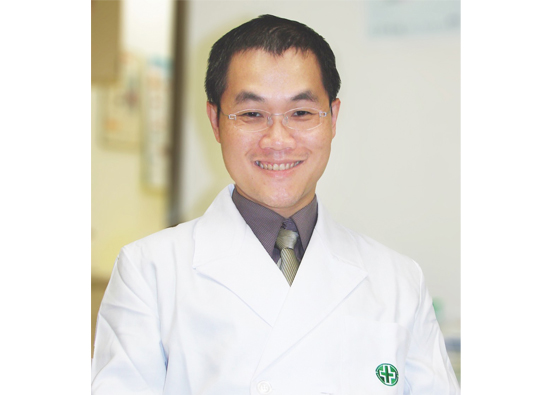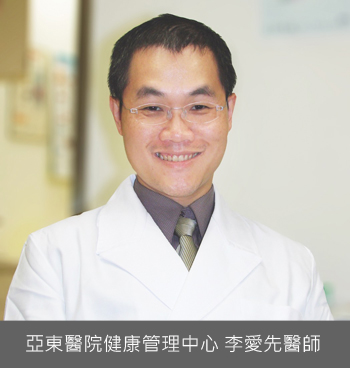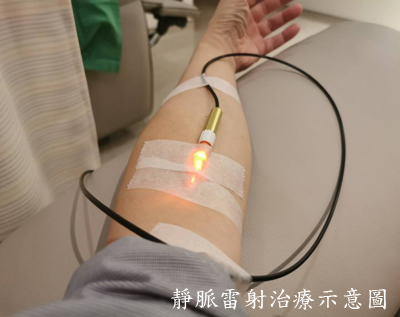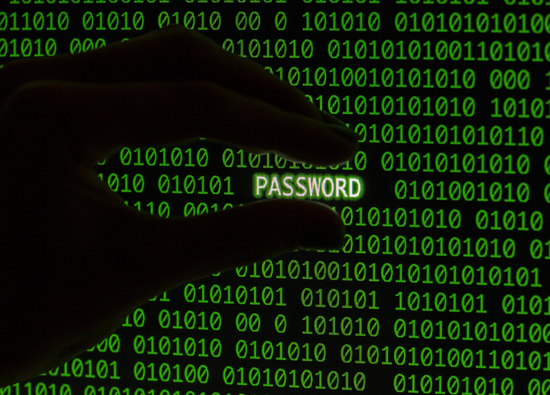06.2024 Life Guide
What diseases can intravenous laser treat?
Far Eastern Memorial Hospital Health Management Center / Li Aixian


 Recently, the media has frequently reported that athletes use "intravenous laser" to increase vitality and improve sports performance. What is "intravenous laser"? Belonging to treatment or maintenance? Can ordinary people use it? This issue of "Health Column" will answer you one by one.
Recently, the media has frequently reported that athletes use "intravenous laser" to increase vitality and improve sports performance. What is "intravenous laser"? Belonging to treatment or maintenance? Can ordinary people use it? This issue of "Health Column" will answer you one by one. As early as the 1980s and 1990s, the former Soviet Union and Russia had widely applied Intravenous Laser Irradiation of Blood (ILIB) to various ischemic cardiovascular and cerebrovascular diseases, chronic inflammation, neurological disorders, and various psychiatric disorders.
As early as the 1980s and 1990s, the former Soviet Union and Russia had widely applied Intravenous Laser Irradiation of Blood (ILIB) to various ischemic cardiovascular and cerebrovascular diseases, chronic inflammation, neurological disorders, and various psychiatric disorders.What is intravenous laser?
Venous laser is the process of introducing low-energy helium neon laser into human blood vessels through a vein. On the one hand, it stimulates red blood cells, improves their deformability and oxygen uptake rate, and on the other hand, it also stimulates white blood cells, regulates immune and antibacterial abilities, while stimulating platelets and reducing agglutination.
Venous laser therapy
Since the introduction of intravenous laser in Taiwan, it has been used by tens of thousands of people, especially in the areas of ischemic stroke and various neurological damage. At present, helium neon laser 632nm is used in clinical practice, with about 10 injections per treatment course. The dosage can be increased according to needs. Usually, after 3 treatment courses, patients will experience improvement in symptoms.
The effectiveness of treatment
The medical staff at Far Eastern Memorial Hospital have performed nearly a thousand cases of intravenous laser therapy, with varying degrees of efficacy in various neurological disorders, known ischemic lesions of the heart, and other diseases; At the same time, it is also beneficial for improving chronic pain, various functional disorders, and sleep disorders. Overall, it can be roughly divided into the following three categories:
Improving blood circulation: high stress, poor sleep, post stroke recovery, etc.
Regulating the immune system: allergies, poor immunity, pain relief, preventive medicine, etc.
Promote metabolism: three high patients, promote wound healing and anti-aging.
In addition, the research results of Professor Zhuang Tianyou from Veterans General Hospital in Taipei also show that after appropriate doses of irradiation, the survival rate and energy of various blood cells in the human body will be significantly improved.
Who is suitable for intravenous laser?
 Although helium neon laser therapy is generally mild and safe, with a wide range of applications and few side effects, there are still a few cases where it is not suitable for treatment, such as photosensitivity, installation of a cardiac rhythm device, poor coagulation function, bleeding constitution, etc. Patients need to seek medical evaluation in advance.
Although helium neon laser therapy is generally mild and safe, with a wide range of applications and few side effects, there are still a few cases where it is not suitable for treatment, such as photosensitivity, installation of a cardiac rhythm device, poor coagulation function, bleeding constitution, etc. Patients need to seek medical evaluation in advance.Does intravenous laser cause pain?
During the process of intravenous laser therapy, patients have almost no sensation, but some people who are sensitive to pain may feel slight stabbing pain.
How long does intravenous laser need to be done?
Each course of intravenous laser therapy consists of 10 sessions, each lasting 60 minutes, with a rest period of 7-14 days between sessions. The duration of each session is approximately 1 hour. Due to individual differences in physical condition, it is necessary for physicians to evaluate and plan the overall course of treatment.
conclusion
There are various types of venous laser treatment instruments in the market, and the treatment effects may vary. If the public has a need for intravenous laser therapy, it is recommended to consult a specialist for a comprehensive evaluation in order to truly help patients effectively activate the activity of intracellular mitochondria, eliminate excessive free radicals and peroxides, moderately adjust inflammatory reactions, increase the amount of mitochondrial DNA, reduce muscle fatigue, and achieve the best treatment quality and effectiveness.
*Dr. Li Aixian's expertise includes general internal medicine and cardiovascular related diseases, various cardiovascular intervention treatments, placement of bradycardia rhythmic devices, medication and intervention treatments for various peripheral vascular diseases, and intervention treatments for ischemic cerebrovascular diseases.
If you have any questions, please feel free to consult the Far Eastern Memorial Hospital contracted clinic, scan the LINE @ QR Code, or call (02) 7738-5577.
#




















